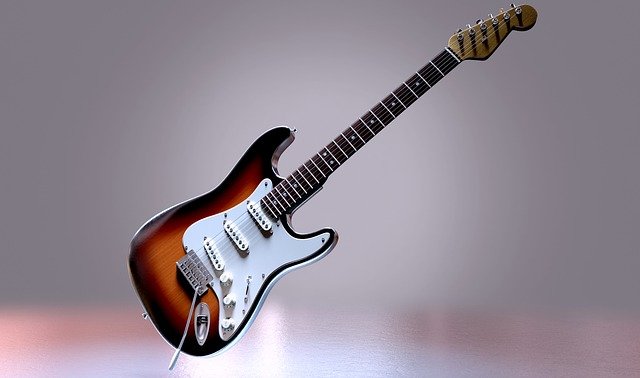How low (or high) can you go?
Introduction
Even if you’re a complete beginner at learning the guitar, or music theory, you’ve probably heard of the term octave. People often use it when referring to an artist’s vocal capabilities, for example, “she can barely sing an octave”. So what is this all-important musical term, how can it help you be a better musician, and how many octaves on a guitar? Today we will be looking to answer all those questions, so let’s begin!
What are octaves?
Octaves are musical intervals between two of the same notes, differing in pitches. An interval, in music, is the difference in pitch between two sounds. Octaves are a kind of “perfect” interval because they’re considered to be perfectly consonant. Consonant means when two notes sound pleasant when played together.
For example, you have the notes CDEFGABC. Here, the octave is the distance from C to the next C, including those two. This series of 8 notes is an octave, hence the name! Two notes separated by an octave have an interesting relationship with regards to their frequencies. The note on the higher side of the octave has a frequency double the note on the lower side. The octave is known as the most pleasant sounding musical interval because of this relationship between notes and frequencies! An octave can also be divided into 12 semitones.
Notes separated by an octave, when played together, have a really satisfying ringing sound to them since they’re essentially the same note but at double or half the frequencies.
Octaves are used as points of resolution. This means that they’re used as a guideline for melodies to resolve and come to a conclusion. A resolution is said to be the movement of a note or chord from being an unstable sound to a stable, or consonant one.
How many octaves on a guitar?
Now that you know what an octave is and what you can use it for, let’s see how many octaves there are on a guitar.
As we mentioned earlier, an octave is an interval between two of the same notes, doubling in frequency, amounting to 8 notes or 12 semitones. On a guitar, a semitone is represented by a fret. So a distance of 12 frets on a guitar will make up an octave! This means that an octave on a guitar can be measured as 12 frets from the root note.
While there are many kinds of guitars with a varying number of strings and frets, for the purposes of this article, we will be taking a look at the standard 6-string guitar with 22 frets. A regular old acoustic guitar will have almost four whole octaves. To compare with a full-sized keyboard, the keyboard has over 7 octaves.
When should I learn the octaves?
Most beginner guitarists head straight for the chords as soon as they get their guitar, which is understandable. You don’t want to bore yourself with the technicalities, you just want to start playing your favorite songs right? However, this approach doesn’t build a strong foundation. We recommend starting with learning the octaves first and then moving onto other things. Octaves are a very basic, yet necessary element of music that will make learning more complicated concepts easier for you in the future.
Final Thoughts
To sum it all up, an octave can be defined as a perfect interval between two of the same notes. This interval is 8 notes, or 12 semitones long, with the starting note being played at half the frequency of the final note. You can use octaves to build and then resolve tension while composing music.
A six-string guitar with 22 frets has almost four octaves. An octave on the guitar starts at the root note and then ends after 12 frets (or semitones).
A good idea is to get familiar with the octaves on a guitar before learning anything else, this will make tougher concepts less overwhelming.
In this way, we come to the end of this article about the most pleasant musical interval, the octave. We hope this article helped answer your question, how many octaves on a guitar!



